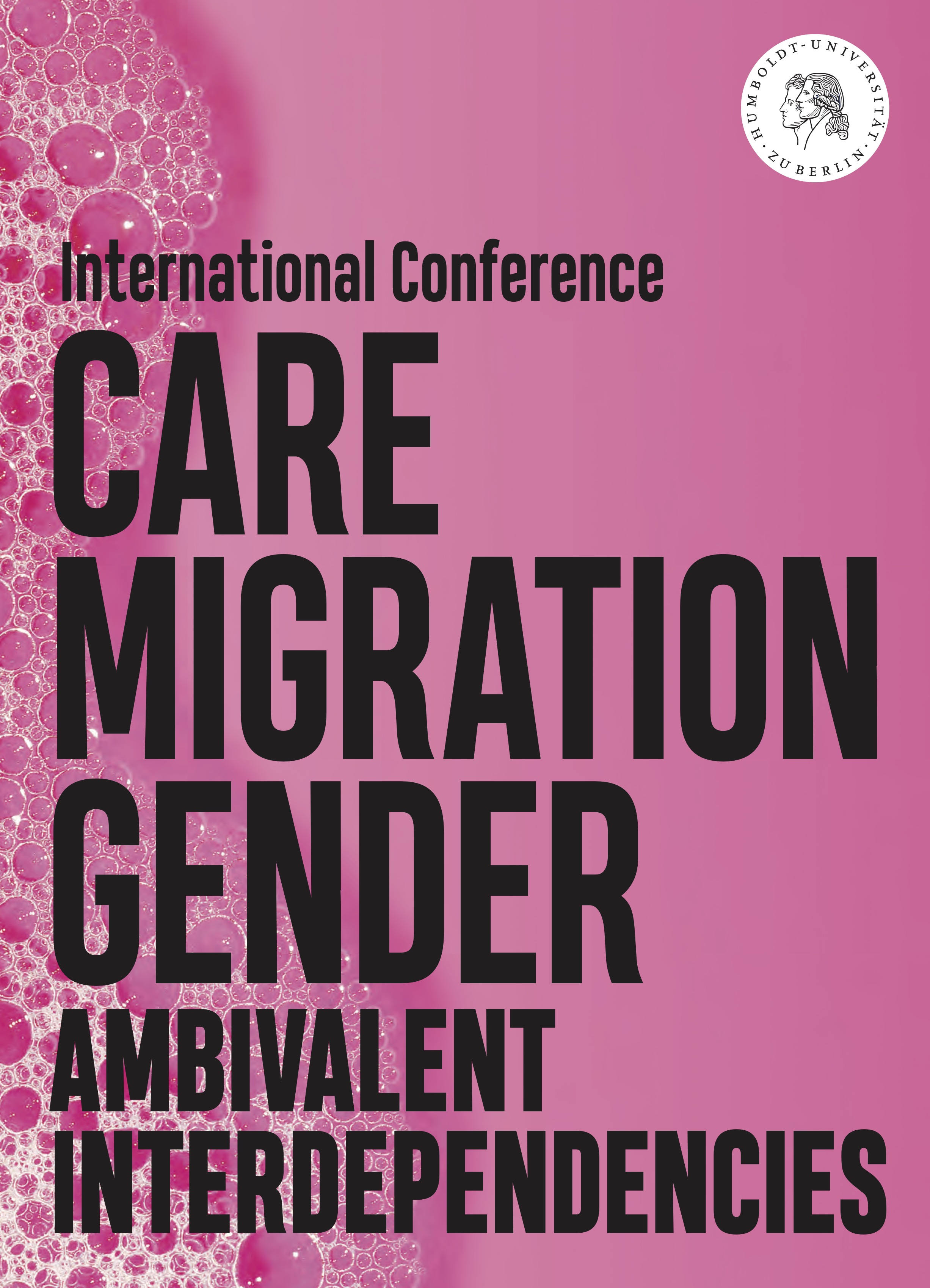Befähigung, Care und persönliche Assistenz: Beziehungen herstellen
DOI:
https://doi.org/10.17169/ogj.2021.109Schlagworte:
Befähigungsansatz, Care, Vertrag, Behinderung, EthikAbstract
Der Capability-Ansatz/die Capability-Theorie (CA/T) erhebt den normativen Anspruch, dass die Freiheit, Wohlbefinden zu erreichen, von primärer moralischer Bedeutung ist. Er hat in seinem ursprünglichen Anwendungsbereich, den Development Studies, bedeutende Beiträge geleistet und wurde auch in anderen Bereichen als Rahmen für die Bewertung der Beziehung zwischen Wohlbefinden und sozioökonomischen Kontexten verwendet, um politische Maßnahmen für den sozialen Wandel zu untermauern. Die Abkehr des CA/T von einer ausschließlichen Fokussierung auf Ressourcen (Umverteilung) offenbart, wie die Beziehung zwischen den Elementen Partizipation und Freiheit bei der Erreichung von Wohlbefinden strittig wird. In diesem Beitrag wird anhand von zwei Beispielen aus der empirischen Forschung, die mit behinderten bzw. pflegebedürftigen Menschen, ihren persönlichen Assistenten und Pflegekräften durchgeführt wurde, untersucht, wie die Aufmerksamkeit für Teilhabe, Beziehung und Zugehörigkeit CA/T weiterentwickeln kann.
Literaturhinweise
Anderson, Bridget (Ed.) (2020): Methodological Note to Accompany D5.3 national case studies. https://migration.blogs.bristol.ac.uk/research-projects/bodies-borders-justice/ethos/ethos-outputs/ (04.09.2020).
Aubrecht, Katie/Kelly, Christine/Rice, Carla (2020): The Aging-Disability Nexus. Columbia: The University of British Columbia.
Boyle, Geraldine (2008): Autonomy in long‐term care: a need, a right or a luxury?. In: Disability & Society, 23 (4), 299–310. doi: http://doi.org/10.1080/09687590802038795
Brito, Laura (2018): Being Paid to Care For or Care About? Ethnographies of Home Care, National Report, Portugal. https://www.ethos-europe.eu/working-papers-country-reports (04.09.2020).
Fields, Deborah/Kafai, Yasmin (2009): A Connective Ethnography of Peer Knowledge Sharing and Diffusion in a Tween Virtual World. In: International Journal of Computer Supported Collaborative Learning 4 (1), 47–68. doi: http://doi.org/10.1007/s11412-008-9057-1
Fraser, Nancy (2005): Mapping the Feminist Imagination. From Redistribution to Recognition to Representation. In: Constellations 12 (3), 295–307. doi: http://doi.org/10.1111/j.1351-0487.2005.00418.x
Fraser, Nancy (1998): From redistribution to recognition? Dilemmas of justice in a „post-socialist“ age. In: Willett, Cynthia (Ed.): Theorizing Multiculturalism. A Guide to the Current Debate. Malden, Massachusetts: John Wiley & Sons, 19–49.
Fraser, Nancy/Honneth, Axel (2003): Redistribution or Recognition? A Political-Philosophical Exchange. New York: Verso.
Gellert, Paul/Feldman, Shelley (2006): The Seductive Quality of Central Human Capabilities. Sociological Insights into Nussbaum’s and Sen’s Disagreement. In: Economy and Society 35 (3), 423–452. doi: http://doi.org/10.1080/03085140600845008
Guess, Doug/Benson, Holly Anne/Siegel-Causey, Ellin/Agran, Martin (2008): Concepts and Issues Related to Choice Making and Autonomy among Persons with Severe Disabilities. In: Research and Practice for Persons with Severe Disabilities 33 (1–2), 75–81. doi: http://doi.org/10.2511/rpsd.33.1-2.75
Kittay, Eva (1999): Love’s labor: essays on women, equality, and dependency. New York: Routledge.
Khader, Serene/Kosko, Stacey (2019): “Reason to Value”: Process, Opportunity, and Perfectionism in the Capability Approach. In: Keleher, Lori/Kosko, Stacy J. (Ed.): Agency and Democracy in Development Ethics. Cambridge: Cambridge University Press, 178–204. doi: http://doi.org/10.1017/9781108163880
Kröger, Teppo (2009): Care Research and Disability Studies: Nothing in common?. In: Critical Social Policy 29 (3), 398–420. doi: http://doi.org/10.1177/0261018309105177
Leahy, Ann (2018): Too Many “False Dichotomies”? Investigating the division between ageing and disability in social care services in Ireland: a study with statutory and non-statutory organisations. In: Journal of Aging Studies 44 (1), 34–44. doi: http://doi.org/10.1016/j.jaging.2017.09.005
Meier, Isabelle (2018): “You really need to hold back – you are only the surrogate eye”. Personal Assistance in Austria. https://www.ethos-europe.eu/sites/default/files/5.3_austria.pdf (11.05.2021).
Mitra, Sophie (2006): The Capability Approach and Disability. In: Journal of Disability Policy Studies 16 (4), 237–247. doi: http://doi.org/10.1177/10442073060160040501
Norwich, Brahm (2014): How does the Capability Approach Address Current Issues in Special Educational Needs, Disability and Inclusive Education Field?’. In: Journal of Research in Special Educational Needs 14 (1), 16–21. doi: http://doi.org/10.1111/1471-3802.12012
Nussbaum, Martha (2003): Capabilities as Fundamental Entitlements. Sen and Social Justice. In: Feminist Economics 9 (2/3), 33–59. doi: http://doi.org/10.1080/1354570022000077926
Oldman, Christin (2002): Later Life and the Social Model of Disability: A Comfortable Partnership? In: Ageing and Society 22 (6), 791–806. doi: http://doi.org/10.1017/S0144686X02008887
Oliver, Mike (2013): The Social Model of Disability: thirty years on. In: Disability and Society 28 (7), 1024–1026. doi: http://doi.org/10.1080/09687599.2013.818773
Oliver, Mike (1983): Social Work with Disabled People. Basingstoke: MacMillan.
Priestley, Mark (1999): Disability Politics and Community Care. London: Jessica Kingsley Publishers.
Rippon, Simon/Theuns, Thomas/de Maagt, Sem/Zala, Mikos/van den Brink, Bert (2018): Report on the European Heritage of Philosophical Theorizing about Justice. https://ethos-europe.eu/sites/default/files//docs/d2.1_website_report_complete.pdf (18.12.2018).
Robeyns, Isabelle (2003): Is Nancy Fraser’s Critique of Theories of Distributive Justice Justified? In: Constellations 10 (4), 538–554. doi: http://doi.org/10.1046/j.1351-0487.2003.00352.x
Saxton, Marsha/Powers, Laurie/Eckels, Karyl/Curry, Mary-Ann/Maley, Susan/Gross, Jacqueline (2001): ”Bring me my scooter so I can leave you”. A Study of Disabled Women Handling Abuse By Personal Assistance Providers. In: Violence Against Women 7 (4), 393–417.
Sen, Amartya (2004): Capabilities, Lists and Public Reasons: Continuing the Conversation. In: Feminist Economics 10 (3), 77–80. doi: http://doi.org/10.1080/1354570042000315163
Sen, Amartya (1999): Development as Freedom. New York: Knopf.
Sen, Amartya (1993): Capability and Well-being. In: Nussbaum, Martha/Sen, Amartya (Ed.): The Quality of Life. Oxford: Clarendon Press, 30–53.
Sen, Amartya (1985): Well-being, Agency and Freedom. The Dewey Lectures 1984. In: Journal of Philosophy 82 (4), 169–221.
Sen, Amartya (1984): Resources, Values and Development. Oxford: Basil Blackwell.
Silvers, Anita (1997): Disability Rights. In: Chadwick, Ruth (Ed.): The Encyclopedia of Applied Ethics, ed. Ruth Chadwick. San Diego: Academic Press, Inc.
Terzi, Lorella (2010): Justice and Equality in Education. A Capability Perspective on Disability and Special Educational Needs. London: Bloomsbury.
Terzi, Lorella (2005): Beyond the Dilemma of Difference. The Capability Approach to Disability and Special Educational Needs. In: Journal of Philosophy of Education 39 (3), 443–459. doi: http://doi.org/10.1111/j.1467-9752.2005.00447.x
Thomas, Carol (2004): How is disability understood? An examination of sociological approaches. In: Disability & Society 19 (6), 569–583. doi: http://doi.org/10.1080/0968759042000252506
Trani, Jean-Francois/Bakshi, Parul/Bellanca, Nicolò/Biggeri, Mario/Marchetta, Francesca (2011): Disabilities through the Capability Approach Lens. Implications for Public Policies. In ALTER-European Journal of Disability Research/Revue Européenne de Recherche sur le Handicap 5 (3), 143–157. doi: http://doi.org/10.1016/j.alter.2011.04.001
Tronto, Joan (1993): Moral Boundaries. A Political Argument for an Ethic of Care. New York, Routledge.
van den Brink, Bert/Rippon, Simon/Theuns, Thomas/Zala, Mikos (2018): Report on the workshop ‘’Ideal and Non-Ideal theories of Justice’’: Towards a Non-Ideal Theory of Justice in Europe. https://ethos-europe.eu/sites/default/files//docs/d2.2_loaded_website_version.pdf (18.12.2018).
Wehmeyer, Michael (2005): Self-Determination and Individuals with Severe Disabilities: Re-examining meanings and misinterpretations. In: Research and Practice for Persons with Severe Disabilities 30 (3), 113–120. doi: http://doi.org/10.2511/rpsd.30.3.113
Winance, Myriam/Damamme, Aurélie/Fillion, Emmanuelle (2015): Thinking the Aid and Care Relationship from the Standpoint of Disability: stakes and ambiguities. In: Alter 9 (3), 163–168. doi: http://doi.org/10.1016/j.alter.2015.05.007

Downloads
Veröffentlicht
Zitationsvorschlag
Ausgabe
Rubrik
Kategorien
Lizenz
Alle Beiträge in Open Gender Journal erscheinen unter der Lizenz Creative Commons Namensnennung 4.0 International (CC BY 4.0). Die entsprechenden Texte dürfen Sie unter den Bedingungen der Lizenz frei nutzen (Lizenzvertrag, allgemeinverständliche Fassung). Es findet keine exklusive Übertragung von Verwertungsrechten („copyright transfer“) an die Zeitschrift statt. Open Gender Journal stellt den Autor*innen keinerlei Kosten für die Publikation (sogenannte Article Processing Charges, APC) oder die Einreichung (sog. Submission Charges) in Rechnung. Die Autor_innen werden ermutigt, ihre Beiträge auch an anderen Orten, z.B. in Repositorien, einzustellen.












